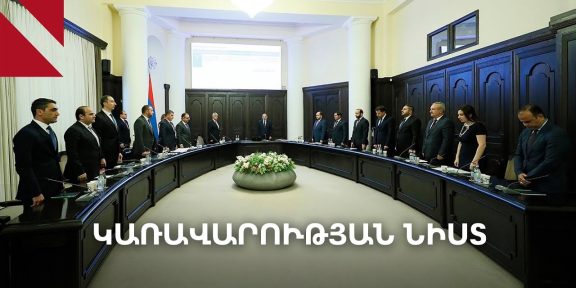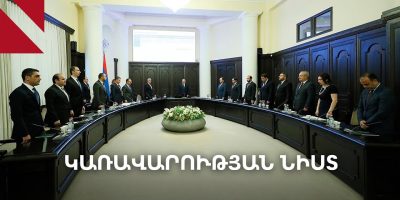Նոր կորոնավիրուսային համավարակը հանրության և լրատվամիջոցների ուշադրությունից դուրս է մղել տարածաշրջանային հակամարտությունները։ Սակայն դա չի նշանակում, որ դրանք լուծվել կամ սառեցվել են։ 2011 թ. գարնանից շարունակվող սիրիական հակամարտությունը դեռ շատ հեռու է կարգավորումից։ Միևնույն ժամանակ, վերջին շաբաթների ընթացքում արևմտյան վերլուծական որոշ շրջանակներում քննարկվում է Ռուսաստան – ԱՄՆ – Թուրքիա պայմանավորվածությունների ձեռքբերման միջոցով նախագահ Ասադին իշխանությունից հեռացնելու հավանականության հարցը։ Որքանո՞վ են իրատեսական այդ սպասումները, ի՞նչ զարգացումներ են հնարավոր Սիրիայում առաջիկայում։
«Խաչմերուկ» հաղորդաշարի հերթական թողարկման ընթացքում քաղաքագետ Բենիամին Պողոսյանը վերլուծում է Սիրիայում ստեղծված իրավիճակը և խնդիրը քննարկում Սիրիայում Հայաստանի նախկին դեսպան, արևելագետ Դավիթ Հովհաննիսյանի հետ։
What Next in Syria?
Since spring 2011, Syria has been consumed by a bloody civil war which was complicated by the active involvement of a number of external players. The US, Russia, EU, China, as well as Turkey, Iran, Saudi Arabia and Qatar have been vying for influence and control.
After nine years of carnage it seems that the war is drawing to a close. Government forces with intensive support from Iran and Russia have retaken over 70 percent of territory, while other parts are largely controlled by either the Syrian Democratic Forces or numerous rebel groups connected with Turkey, Saudi Arabia and Qatar.
However, the steep economic recession triggered by the COVID-19 pandemic and the slump of oil prices may force Russia, Iran and Saudi Arabia to change their calculations regarding the Syrian conflict and seek to find a compromise-based solution. In recent weeks several Russian media outlets have published reports criticizing President Assad’s regime for rampant corruption and for its inability to push forward a diplomatic solution. Some western observers view these publications as proof of growing Russian anger and as a sign of Russian intentions to replace Assad as the only possible move to stabilize Syria. However, the removal of Assad from power requires compromise between at least the US, Russia, Iran, and Turkey. Meanwhile, given the deep contradictions of interests any quick breakthrough in this direction is quite unlikely. Thus, most probably at least in the short term no major changes may happen in Syria.
CivilNet’s host and political commentator Benyamin Poghosyan discusses the topic with Professor Davit Hovhannisyan, Armenia’s former ambassador to Syria (1992-1998).
CivilNet thanks the Friedrich-Ebert-Stiftung (FES) for their cooperation and support.














